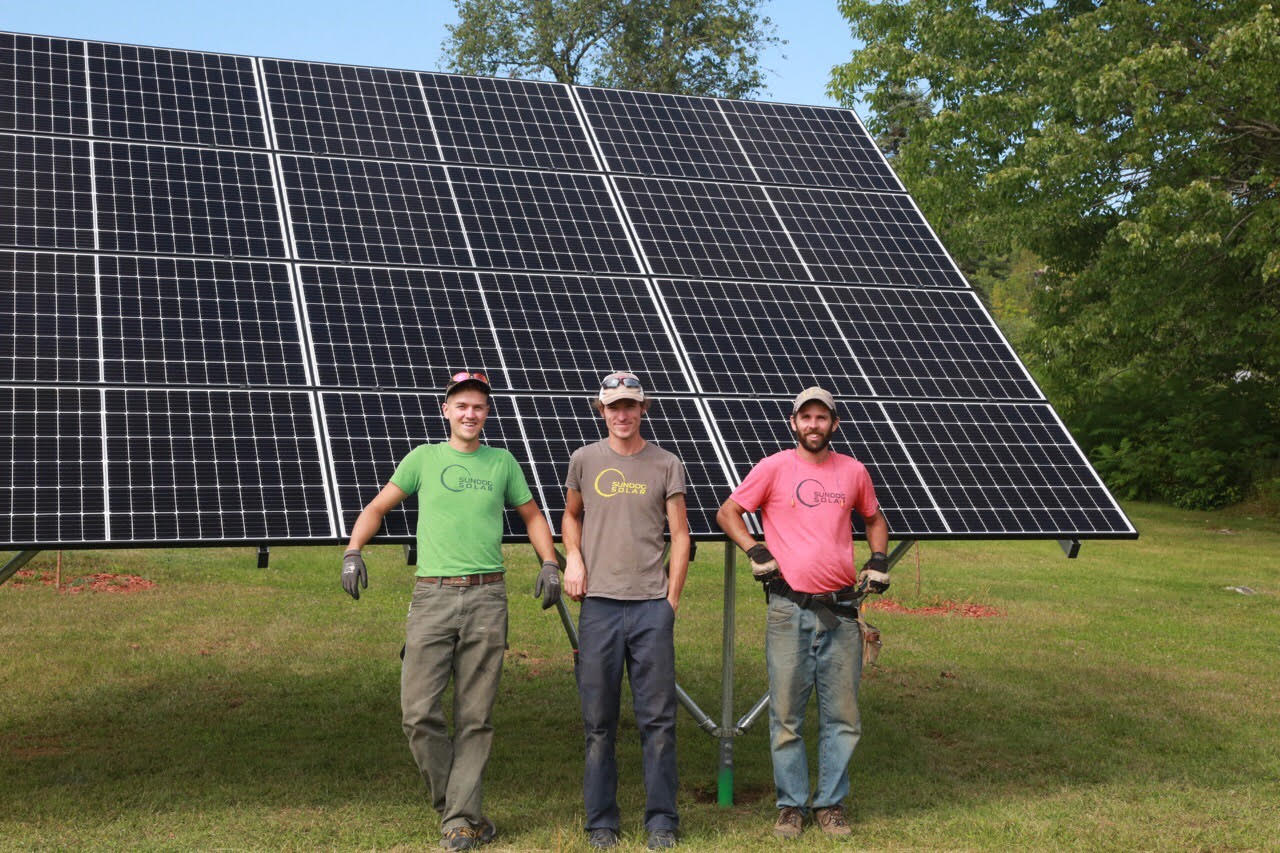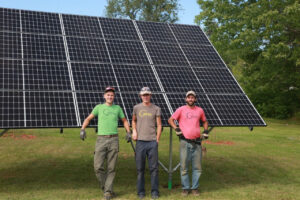
25 Jan Should I join a Maine community solar farm?
 More and more Mainers are using solar power than ever before! Residents that want to power their homes with solar energy have two primary options: install panels on their property or join a community solar farm. The latter typically involves paying a monthly fee to get power from a solar farm. Due to recent policy changes, there are numerous community solar farms planned for Maine.
More and more Mainers are using solar power than ever before! Residents that want to power their homes with solar energy have two primary options: install panels on their property or join a community solar farm. The latter typically involves paying a monthly fee to get power from a solar farm. Due to recent policy changes, there are numerous community solar farms planned for Maine.
“The good news is that we now have more ways than ever to take advantage of solar energy,” says Danny Piper, co-owner of Sundog Solar. “It’s essential for Mainers to determine which solar option is best. In some cases, community solar farm members may be leaving money on the table.”
Let’s explore your solar energy options, so you know if joining a community solar farm is a wise idea.
Which households benefit the most by joining a solar farm?
If you cannot install solar panels on your property, joining a community solar farm is often your best option. Renters or people with heavily shaded properties are prime candidates.
Renters
It doesn’t usually make sense for a tenant to install solar panels on a property they do not own, especially if they must pay for the solar system. They would need to foot the bill for the solar installation yet not be eligible for the 26 percent federal tax credit. They also wouldn’t benefit from the increased property value.
This is not the case if the property owner is open to paying for the solar system. If you are a renter, the best options are to join a community solar farm or ask the property owner to install the system.
Shaded Properties
Solar systems need direct sunlight to generate power at peak performance. If a property has a lot of shade, then community solar is probably a better fit. This is especially true if evergreen trees shade the property because they don’t lose their leaves in the winter like deciduous trees.
It is most crucial for a solar system to receive direct sun during the midday hours when the rays are strongest. A little early morning or late afternoon shade won’t dramatically impact the total solar electricity production. Shade during the middle of the day can have a significant effect on overall production.
Keep in mind that solar panels don’t need to be installed on the house roof. A sunny garage, barn, or grassy area can be an excellent site. Mainers with heavily shaded properties could also consider if trimming a tree will significantly mitigate the shading issue.
What are the disadvantages of joining a community solar farm?
Although there are many advantages to solar energy, they vary a bit by location and the situation.
Not Qualifying for the Solar Tax Credit
There is a 26 percent federal tax credit available for home and business owners that install solar panels on a property they own. This is a dollar-for-dollar tax credit off of taxes owed. For example, a $15,000 solar energy system can qualify for a $3,900 tax credit for projects installed in 2021.
Unfortunately, this tax credit isn’t available to people that join a community solar farm. This is because the tax credit goes to the company that owns the system.
Receiving Only Some of the Savings
Although the terms vary, community solar members typically save 5 to 15 percent on electricity rates. Members thus need to pay 85 to 95 percent of the retail rate for energy use from the community solar farm project. This is great, but the savings can be much higher when the solar system is purchased.
For a home that is net-zero (the solar system generates as much as the household consumes), there is a minimal charge of $11 – $13 per month to be connected to the utility grid, a small price to pay to use the grid as your battery. This can result in much greater savings, especially over the long term. Likewise, installing a residential solar system helps boost the local economy by creating stable, high-paying jobs for Mainers.
Owning Solar Panels is Better Than Renting
One benefit of joining a solar farm is that there is typically no upfront cost to join. Similarly, many Maine families and businesses use our solar financing program which also doesn’t require money upfront. In many cases, the monthly loan payments are equal to the monthly savings on the electric bill. The benefit of solar financing over joining a solar farm is that the solar system is owned at the end of the loan period. Why rent solar energy when you can own the solar system?
Land Use
Installing solar panels on an existing roof or a sunny spot in the yard is an excellent use of space, and this has environmental benefits. Unfortunately, solar farms occupy a lot of land. In some cases, cropland is used, taking land out of agricultural production. In other instances, developers clear forested land, reducing wildlife habitat. From a land-use perspective, siting solar panels on a roof or existing cleared yard space is ideal.
Increased Property Value
Installing a solar energy system on your property can significantly boost its value. Solar homes and businesses are cheaper to operate because the electric bills are dramatically lower. A study by the Lawrence Berkeley National Lab found that solar homes sell for far more than homes without solar energy systems. Unfortunately, this benefit is only available when purchasing the solar system and not from joining a community solar farm.


